Google PageSpeed

We all know how important it is to have a fast-loading website. With the average user spending eight seconds or less on a page, the importance of having a fast loading website cannot be overstated – especially in today’s digital world. Enter Google PageSpeed. Google PageSpeed is an open source tool designed to assess and optimize web performance by improving loading time and optimizing resources. Moreover, in this blog post, we will explore what Google PageSpeed is, how it works, and how you can use it to get the most out of your website. Read on to learn more about this invaluable resource for any webmaster!
What is Google PageSpeed test?
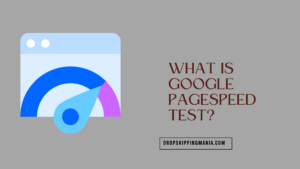
Google PageSpeed is a tool that analyzes the performance of web pages and provides suggestions on how to improve them. PageSpeed Insights (PSI) reports on the real-world performance of web pages, including loading time, interactivity, and visual stability. PSI provides both lab data and field data to help you make informed decisions about how to improve your page’s performance.
How do I use Google PageSpeed?

Assuming you would like content for a blog titled “Google PageSpeed”:
Google PageSpeed is a browser extension that provides insight on how to make your web pages faster. It is available for both Google Chrome and Mozilla Firefox. With PageSpeed, you can get suggestions on how to improve your website’s speed. These suggestions are based on best practices from the developer community.
To use Google PageSpeed, simply install the extension in your browser of choice and then navigate to the website you want to test. PageSpeed will automatically provide suggestions on how to improve the speed of that page. You can also runPageSpeed Insights from the command line to analyze the performance of individual pages or groups of pages.
Is PageSpeed reliable?
Firstly, yes PageSpeed is a reliable tool for measuring the performance of web pages. It is important to note, however, that PageSpeed is only one factor to consider when optimizing a website. other factors such as server response time, caching, and minification also play a role in website performance.
How can I get 100 Google PageSpeed?
There is no surefire answer, but there are a few things you can do to increase your chances:
1. Publish high-quality content on your website. This will not only help improve your website’s PageSpeed score, but it will also make it more likely that people will want to visit and share your site.
2. Make sure your website’s design is up to par. A well-designed website will load faster and be more visually appealing to users, both of which can help improve your PageSpeed score.
3. Optimize your images for the web. Images are often the largest files on a webpage, so reducing their file size can have a big impact on your page’s loading time.
4. Use a content delivery network (CDN). A CDN stores copies of your website’s files on servers around the world, which can help speed up the loading time for visitors who are located far from your site’s primary server.
5. minify CSS and JavaScript files. Minifying these types of files reduces their file size, which in turn helps decrease loading times.
How important is PageSpeed for SEO?
Google PageSpeed is a important factor in SEO (Search Engine Optimization). It is a tool that allows you to check the speed of your website and provides recommendations on how to improve it. A faster website means happier visitors and better conversion rates.
There are several studies that show the importance of page speed, including:
1) The study by Akamai found that a 1 second delay in page load time can result in a 7% decrease in conversions.
2) A study by Gomez found that a 2 second delay in page load time can result in a 20% decrease in conversions.
3) A study by KISSmetrics found that 40% of visitors will abandon a website that takes more than 3 seconds to load.
Moreover, the bottom line is, if you want your website to rank well in search engines and convert visitors into customers, you need to make sure it loads quickly. Google PageSpeed is a great tool to help you with this.
Does page speed affect Google ranking?
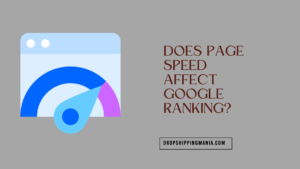
It is no secret that Google takes page speed into account when ranking pages in its search results. In fact, the company has even stated that “page speed is a ranking factor.” However, there is some debate as to how much of a factor page speed actually is.
Some believe that page speed is a very important factor, while others believe that it is not as important as other factors such as content and links. There is no definitive answer, but it seems safe to say that page speed does play at least some role in Google’s ranking algorithm.
If you want to improve your chances of ranking well in Google, you should focus on both improving your website’s page speed and ensuring that your site has high-quality content.
How to boost website speed?
1. Optimize your images.
Make sure your images are as small as possible without sacrificing quality. You can use an image compression tool like TinyPNG to help with this.
2. Minimize HTTP requests.
The more files your website has to load, the longer it will take. Try to reduce the number of files by minifying CSS and JavaScript, using CSS sprites, and combining files where possible.
3. Use a content delivery network (CDN).
A CDN stores copies of your website’s files on servers around the world and serves them to visitors based on their location. This can help speed up loading times, especially for visitors who are far from your server’s physical location.
4. Enable browser caching.
When someone visits your website, their browser downloads all the necessary files to display the page. If they visit your site again, their browser can load some of those files from its cache instead of re-downloading them, which can save time. You can instruct browsers how long to keep certain types of files in their cache by setting expiry dates in your HTTP headers.
What is the difference between site speed and PageSpeed?
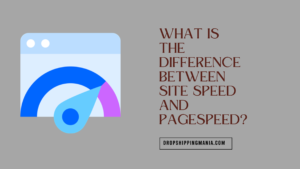
Site speed is the measure of how fast your website loads, while PageSpeed is a measure of how fast your web pages load. PageSpeed is a part of the site speed equation, but it’s not the only factor. Other factors that affect site speed include server response time, file size, and code efficiency.
Does PageSpeed score matter?
Yes, Pagespeed score does matter because it is one of the many signals that Google uses to determine the quality of a web page. A high PageSpeed score indicates that a page is well-optimized and will load quickly for users. This is important because users are more likely to stay on a site that loads quickly, and they are also more likely to return to a site that they had a good experience with.
What is the fastest way to rank on Google Page 1?
There is no definitive answer to this question, as there are a number of factors that can influence your ranking on Google Page 1. However, there are some general tips that you can follow to help improve your ranking:
1. Make sure your website is well-optimized for search engines. This includes having keyword-rich titles and descriptions, as well as optimizing your website’s code and structure.
2. Create high-quality content that is relevant to your target keywords. This content should be well-written and informative, and it should provide value to the reader.
3. Promote your website through social media and other online channels. This will help to build links back to your website, which can improve your search engine ranking.
4. Make sure your website loads quickly and efficiently. Google favors websites that load quickly, so it’s important to optimize your site for speed.
5. Regularly update your website with new content. Google loves fresh content, so adding new pages or blog posts on a regular basis is a great way to keep your site active and relevant in the eyes of the search engine.
How do I get a high score on Google?

There is no one-size-fits-all answer to this question, as the best way to get a high score on Google PageSpeed will vary depending on the individual website and its specific needs. However, there are some general tips that can help website owners increase their PageSpeed score:
1. Optimize images by reducing file size and using appropriate file formats.
2. Minimize HTTP requests by combining files and using caching techniques.
3. Reduce server response times by optimizing server configuration and code.
4. Use efficient JavaScript and CSS coding practices.
5. Take advantage of browser caching by setting expiry dates for static resources.
By following these tips, website owners can improve their chances of getting a high PageSpeed score from Google and providing a better user experience for their visitors.
What is a good PageRank score?
PageRank is a metric used by Google to measure the quality of a website. It is based on the number and quality of inbound links to a site. The higher the PageRank score, the more likely it is that a website will rank higher in search results. A good PageRank score is one that is above average for the websites in your industry.
What are 5 ways to improve website traffic?
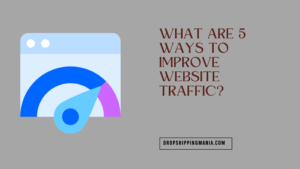
1. Use keyword-rich titles and descriptions.
2. Optimize your website for key search engines.
3. Promote your website through social media channels.
4. Increase your website’s visibility through directories and link building.
5. Use Google AdWords or other paid advertising methods to drive traffic to your website.
What is the best website speed?
The answer to this question depends on a number of factors, including the type of website you have, the content of your website, and your target audience. However, there are a few general tips that can help you speed up your website.
First, consider using a content delivery network (CDN). A CDN is a collection of servers that deliver content to users based on their geographic location. This can help improve website speed by reducing the distance between the server and the user.
Second, make sure your website is optimized for mobile devices. More and more people are using their smartphones and tablets to access the internet, so it’s important to make sure your website is designed for these devices.
Third, use caching to improve website speed. Caching stores frequently accessed data in memory so it can be quickly retrieved when needed. This can dramatically improve website performance, especially for websites with large amounts of data.
Finally, keep your website code clean and concise. The less code there is on your website, the faster it will load. Use tools like Minify to remove unused code from your website files.
What causes slow page speed?
There are many factors that can contribute to a slow page speed. Some of the most common include:
-Too much HTML code: This can make your pages heavier and slower to load. Try reducing the amount of code on your pages, or using a CSS or JavaScript minifier to reduce the size of your files.
-Images that are not optimized: Large images can take a long time to load. Make sure you are using the right file format and compressing your images to reduce their file size.
-Slow server response time: This is often caused by server issues such as poor hosting or a lack of caching. If your server is taking too long to respond, it will slow down your page speed.
-External scripts and stylesheets: If you are loading resources from other websites, this can increase the amount of time it takes for your page to load. Try loading these resources locally or using a content delivery network (CDN) instead.
How do I fix a slow page?
There are a number of ways to fix a slow page. Google has a tool that can help you identify what is causing your page to load slowly. Once you know what the problem is, you can take steps to fix it.
Some common causes of slow pages are:
-Too much code: If your page has too much code, it will take longer to load. You can reduce the amount of code by using minification techniques.
-Too many images: If your page has too many images, it will also take longer to load. You can reduce the number of images by using image sprites or lazy loading.
-Slow server: If your server is slow, it will take longer for your page to load. You can improve your server speed by using caching and optimizing your resources.
What is the first page of a website called?
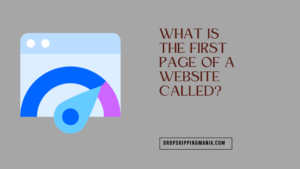
The first page of a website is called the home page. The home page is the main page that visitors see when they first come to your site. It’s important to make a good impression on your home page, because it will set the tone for the rest of your site.
Does Google penalize slow sites?
Yes, Google does penalize slow sites. In fact, site speed is a ranking factor in Google’s search algorithm. This means that if your site is slow, it could be affecting your search engine rankings.
Lastly, there are a few things you can do to improve your site’s speed, including optimizing your images and using a content delivery network (CDN). You can also use Google’s PageSpeed Insights tool to get insights on how to improve your site’s speed.
For more informative articles visit given links:


